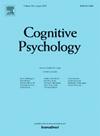No position-specific interference from prior lists in cued recognition: A challenge for position coding (and other) theories of serial memory
Abstract
Position-specific intrusions of items from prior lists are rare but important phenomena that distinguish broad classes of theory in serial memory. They are uniquely predicted by position coding theories, which assume items on all lists are associated with the same set of codes representing their positions. Activating a position code activates items associated with it in current and prior lists in proportion to their distance from the activated position. Thus, prior list intrusions are most likely to come from the coded position. Alternative “item dependent” theories based on associations between items and contexts built from items have difficulty accounting for the position specificity of prior list intrusions. We tested the position coding account with a position-cued recognition task designed to produce prior list interference. Cuing a position should activate a position code, which should activate items in nearby positions in the current and prior lists. We presented lures from the prior list to test for position-specific activation in response time and error rate; lures from nearby positions should interfere more. We found no evidence for such interference in 10 experiments, falsifying the position coding prediction. We ran two serial recall experiments with the same materials and found position-specific prior list intrusions. These results challenge all theories of serial memory: Position coding theories can explain the prior list intrusions in serial recall and but not the absence of prior list interference in cued recognition. Item dependent theories can explain the absence of prior list interference in cued recognition but cannot explain the occurrence of prior list intrusions in serial recall.

 求助内容:
求助内容: 应助结果提醒方式:
应助结果提醒方式:


